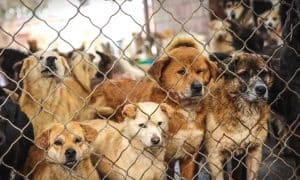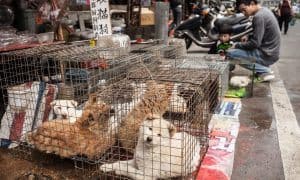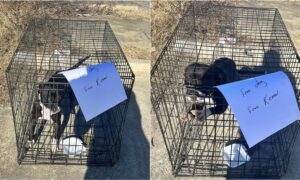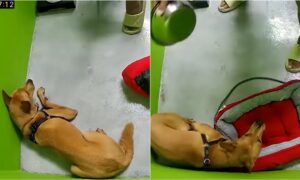“This post contains affiliate links, and I will be compensated if you make a purchase after clicking on my links.”
BEIJING—Chinese animal activists have released distressing images from inside a filthy, backstreet dog slaughterhouse in Yulin, China just days ahead of the city holding its annual dog meat festival at which thousands of dogs and cats will be killed and eaten.
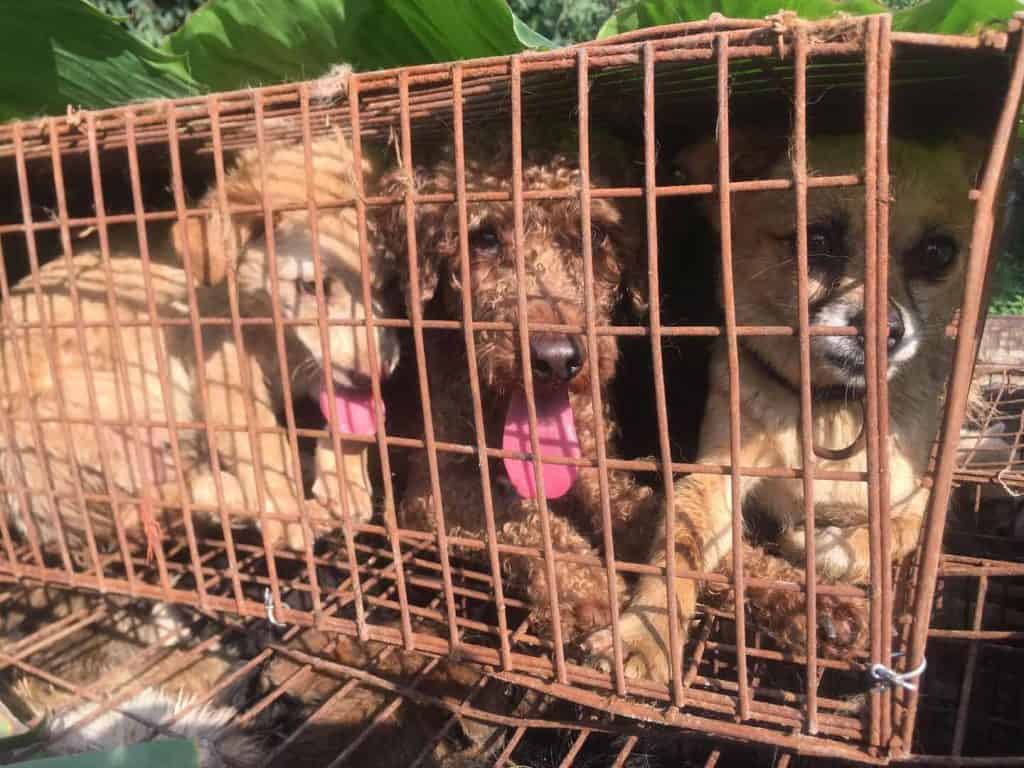
The activists, who wish to remain anonymous, rescued 62 terrified dogs from Yulin on June 12. Communicating via other Chinese activists with whom the rescue team worked, animal charity Humane Society International released footage and photos from the rescue, and has been responding to requests to accommodate and care for some of these dogs.
The dogs were severely dehydrated and malnourished, with some showing signs of sickness and infection. They are mostly small breeds typical of pet dogs in China, and some were still wearing their collars when rescued. Most dogs and cats caught up in China’s meat trade are believed to be strays snatched from the streets and pets stolen from people’s backyards, in clear violation of Chinese laws. They are crammed into wire cages and driven for hours or even days across the country, before reaching the slaughterhouse where they are beaten to death.
The Yulin dog meat festival begins in earnest on June 21st to mark the summer solstice. It is not a traditional festival, but was invented as recently as 2010 by dog traders trying to boost flagging dog meat sales. Before the festival started, Yulin had no history of mass dog slaughter and consumption.
Wei, one of the Chinese activists, told HSI, “It was swelteringly hot inside the slaughterhouse when we got there, the dogs were exhausted and panting, some pressing themselves tight against the wall in an effort not to be noticed. Others chased around our legs eager for attention. We noticed straight away that some of them were wearing pet collars so they were probably stolen, and some of them looked very sick so we quickly loaded them on the truck to get them to our temporary shelter quickly to receive emergency veterinary treatment. The slaughter man told us that these dogs were likely one of the last truckloads of dogs entering Yulin before the festival because the local government was likely to stop further trucks from entering the city, but we didn’t stick around to verify that. We want the world to see the horrors of China’s dog meat trade of which Yulin is typical, and for dog lovers everywhere to stand up against this terrible cruelty. Please don’t waste your breath calling dog eating Chinese culture. It is not our culture to steal people’s pets. It is not our culture to eat dogs.”
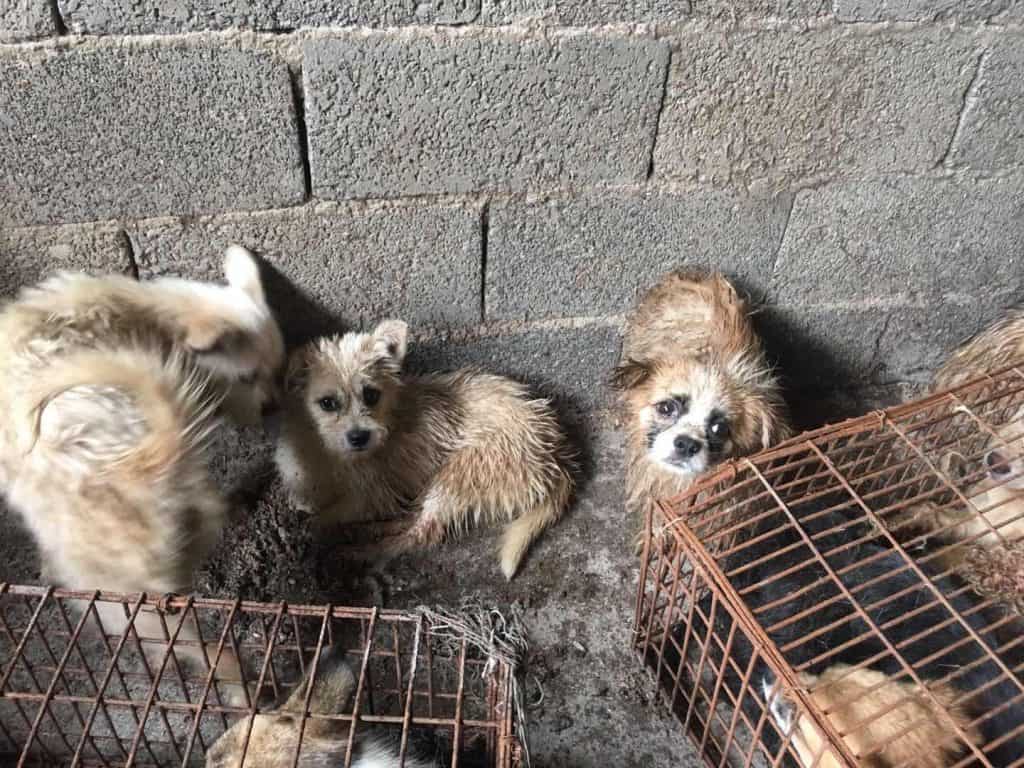
The 62 dogs were immediately driven to a temporary shelter where they received emergency care, food and water. The dogs were rested for several days before leaving Yulin to make the journey to the various different permanent shelters that will care for them longer term, including one supported by HSI in north China. Some of the dogs who receive HSI help will eventually be placed for adoption in the United States, while others will be available for adoption within China or be cared for longer term at the shelter.
Dr Peter Li, HSI’s China policy specialist, commented on the rescue, saying, “Yulin is a very tense place right now, with dog traders and slaughterhouses on high alert, so it was difficult for these Chinese activists to win the trust of this facility to release the dogs. We commend their efforts to show the world the suffering of these poor animals, and to expose the dog theft that lies behind the dog meat trade. These dogs are traumatized and in need of veterinary treatment, but they are the lucky ones because for them at least the horror of Yulin is over. Sadly, thousands more will still die at Yulin, and millions across China, unless decisive action is taken. So we urge the Chinese government to show that it will not tolerate the dog thief gangs who perpetuate this trade, and bring an end to the brutal dog and cat meat trade.”
The dog meat trade isn’t just an issue of animal welfare, it also poses a serious threat to human health. The World Health Organisation has warned that the dog trade spreads lethal diseases such as rabies and cholera. Yulin has long been a city with one of the highest rates of human rabies cases in China, and the local trade undermines the Chinese government’s goal of eliminating rabies in China by 2025. Selling and processing meat from sick and dying dogs in Yulin and elsewhere is also a serious violation of China’s food safety law, and yet the trade is allowed to persist with relatively little legal sanction.
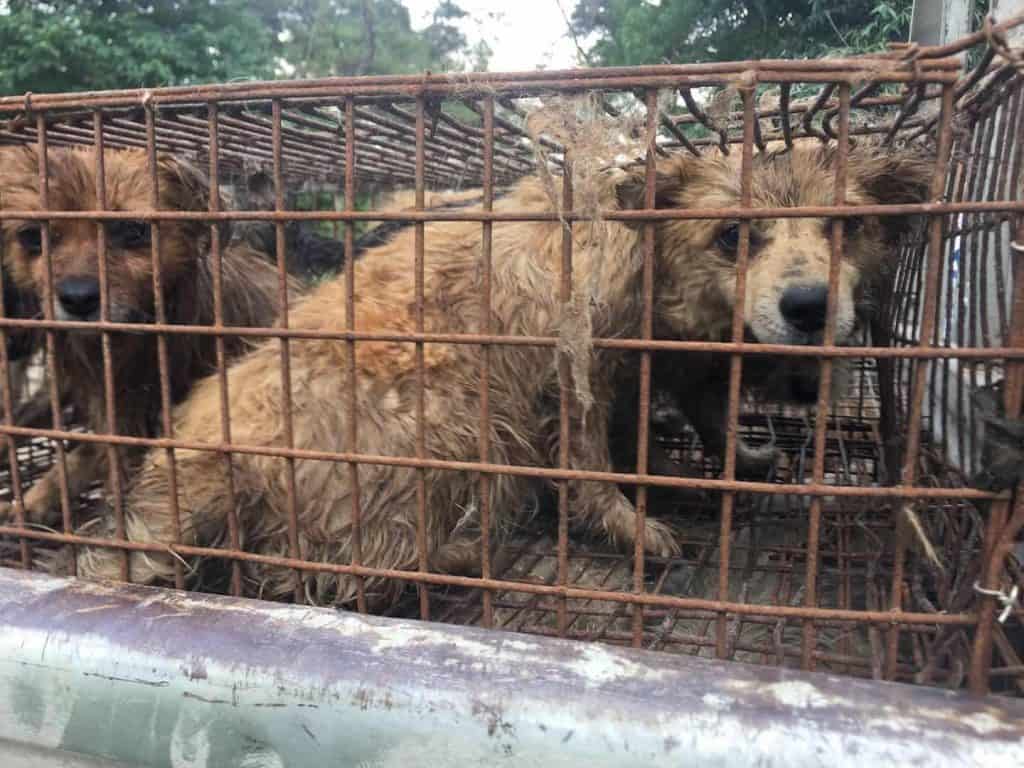
Fast facts about Yulin and China’s dog meat trade
1. Most people in China don’t eat dogs, in fact dog meat is only eaten infrequently by less than 20 per cent of the Chinese population. A 2017 survey conducted by Chinese state-registered charities and assisted by a team of six research staff from the Yulin Municipal Government, revealed that most people living in Yulin (72 percent) don’t regularly eat dog meat despite efforts by dog meat traders to promote it.
2. A 2016 survey conducted by Chinese polling company Horizon, and commissioned by Chinese group China Animal Welfare Association in collaboration with Humane Society International and Avaaz, found that most Chinese citizens (64 percent) want to see an end to the Yulin festival, more than half (51.7 percent) think the dog meat trade should be completely banned, and the majority (69.5 percent) have never eaten dog meat.
3. When first launched in 2010, as many as 15,000 dogs were killed during the core festival days, but Chinese and international pressure has seen this figure reduce to around 3,000 dogs. However, many hundreds are still killed each day in the weeks leading up to the festival.
4. An estimated 30 million dogs a year are killed across Asia for their meat, some 10-20 million in China alone.
To join the fight to end China’s horrific dog meat trade, join us in petitioning Prime Minister of China, Li Keqiang to end the Yulin festival and ban the dog and cat meat trade across the country. SIGN HERE.

